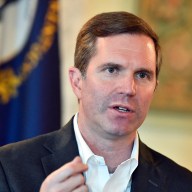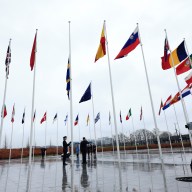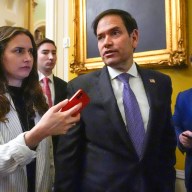OTTAWA – For Stephen Harper, the key for this week’s summit with First Nations leaders is to avoid a repeat of the Kelowna Accord.
The sprawling blueprint was drawn up in 2005 — the last time native leaders met face-to-face as a group with Canada’s prime minister in an attempt to hash out solutions and plot a better way forward.
But when the Conservatives came to power less than three months later, they neglected to approve any funding for the $5-billion agreement, and it withered on the vine — to the disappointment of many aboriginal leaders.
The Kelowna agreement was a complex 18 months in the making, with roundtables, reports and meetings leading up to a final summit. It was an arrangement among provinces, the federal government, and aboriginal organizations representing First Nations, urban aboriginals, Inuit and Metis.
The deal was supposed to fix poverty once and for all, by investing heavily in the underlying problems over the course of five years.
“The approaches developed in those agreements will close the gap in quality of life between First Nations and other Canadians within a decade and will ultimately benefit all Canadians by strengthening the economic and social conditions in this country as a whole,” Phil Fontaine, the national chief of the Assembly of First Nations, said at the time.
Money was supposed to be set aside for housing, education, health and economic development.
When Harper’s Conservative government took office, it dismissed the accord as flimsy and not worthy of attention. Instead, the prime minister said he would find a better way. He has made a formal apology for residential school abuses, and signed the United Nations Declaration on the rights of indigenous peoples.
Now, as the chiefs and the government prepare to meet once again, there are still no end of lofty goals. The agenda cites “strengthening the relationship”, “unlocking the potential of First Nation economies,” and “realizing the promise of First Nations peoples.”
But no one is promising to eradicate poverty or throw $5 billion at the daily problems many First Nations face.
Rather, Harper is vowing an incremental approach. He has already started down this path with several pieces of finely targeted legislation and a task force on First Nations education.
Expect more task forces to be announced this week. More legislation is anticipated over the next year, dealing with education, clean water and land ownership. And some money is expected in the 2012 budget for targeted initiatives — perhaps a pilot project or two.
Many Conservative insiders say Harper is dedicated to working with First Nations. But they say that for this prime minister, it’s not a charity project. Rather, it is a matter of national interest: Ending the relationship of dependency; developing a labour force that the Canadian economy will soon desperately need; and finding a way to work together compatibly in the exploitation of natural resources.
Harper sees his predecessor’s approach to negotiation as cumbersome and impractical.
Assembly of First Nations officials have done a lot of foot work among chiefs in advance of this week’s summit, making it clear that Kelowna is not in Harper’s vocabulary. Indeed, some insiders acknowledge avoiding the mere mention of the accord when talking to Conservatives, for fear of tainting the conversation.
“We’ve lost eight years,” says Liberal aboriginal affairs critic Carolyn Bennett, who participated in some of the preparation for the Kelowna Accord.
She says it’s possible for Harper to make significant progress with First Nations as long as he doesn’t deal with the issues as “silos,” and is sincere about building a respectful relationship with chiefs and their people.
“If using the word ‘Kelowna’ is fingernails down the blackboard, then we have to look forward,” she said.
First Nations, too, have their eye on past prescriptions, which recognized that poverty is tightly tied to funding for housing, education, health and economic development. Chiefs often speak of the difficulty of dealing with problems in isolation.
It’s difficult, they say, to improve education unless the government also deals with a severe shortage of housing, underfunding of child welfare services and generalized poverty.
And it’s difficult, some argue, to move beyond the Indian Act, or establish a better Crown-First Nation relationship, unless the basic issues of poverty and administrative capacity are dealt with first.
Provinces, too, have Kelowna on the brain. While the federal government has sole responsibility for First Nations issues, provinces have increasingly been involved in delivering social services to aboriginal communities and providing support to urban aboriginals.
Premiers have asked Harper repeatedly for a first ministers’ meeting on aboriginal affairs, to no avail. The prime minister’s opinion of first ministers’ meetings is on par with his opinion of the Paul Martin approach to aboriginal affairs.
National Chief Shawn Atleo is well aware of Harper’s preferred approach, but also feels the intense pressure from First Nations people to deliver concrete and significant improvements from this week’s meetings.
In a recent interview, he said he can reconcile the two positions.
“We can be both practical and ambitious.”
















